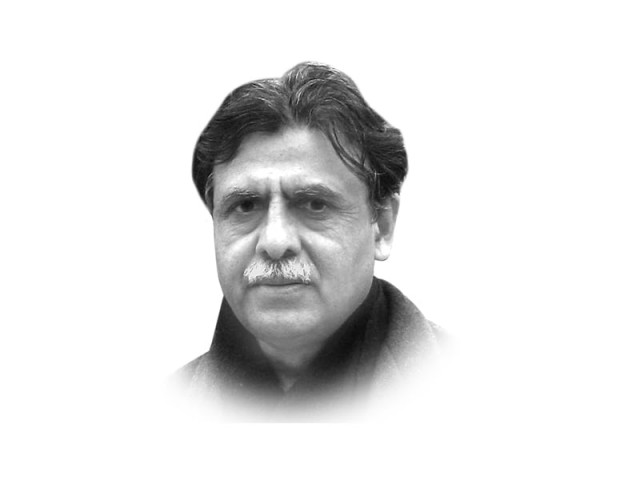Judiciary and conduct of general elections
We need to grow on our own now and this will happen when institutions are put to its real test.

By all means, the conduct of general elections is a huge administrative task involving many tiers of the executive and district functionaries. Each step is fraught with consequences, which are justiciable in the ultimate. This justiciability confers on the judiciary the prerogative and powers to assume the role of an arbiter and adjudicator over the election process but perhaps, not the prerogative to actually man it.
In the given environment of trichotomy of powers between the three key organs of the state, this one-time waiver does need some dilation. The polling scheme of general elections visualises huge mobilisation of personnel and resources. Presiding officers and polling staff are drawn from different administrative sources with the major bulk coming from the education, health, revenue and nation-building departments. The scheme has a series of administrative components, starting from the setting up of polling stations, placement and deployment of staff, their training, dispatching of material and on the polling day itself, the peaceful conduct, compilation and dispatching of results.
One is reminded of a former chief election commissioner of India, who had an impeccable service record. He would mince no words in declaring that general elections were purely an administrative affair to be handled with the same frame by the administrators. In his view, he had the will and the grit to get work done below the line.
The national judicial policy meeting committee has revisited the judicial policy at the formal request of the Election Commission of Pakistan (ECP). However, ever since 1985, on quite a few occasions, general elections were conducted through the subordinate judiciary, yet complaints about lack of transparency made by one party or the other, never abated.
The ECP is well within its right to call upon any institution for assistance for the smooth and fair conduct of elections. The nature of such assistance, however, has to be in concert with the role and functions mandated to that institution under the statute. Designating judicial officers as returning officers may be viewed as a credible move for better transparency, but an understanding of the election mechanism would suggest that the problem is not as much at the district level; instead, it is at the key strategic level where plans for ‘pre- and post-engineered rigging’ are hatched. We have some glaring examples of these two sets of rigging in our recent history. The Asghar Khan case is a testimony to pre-engineered rigging, whereas the birth of the ‘Patriots’ in 2002, which changed the number game in the National Assembly, was a blatant example of post-engineered rigging. That was the time when former president General (retd) Pervez Musharraf hastened to suspend the defection clauses in the Constitution.
The ECP is equipped with a vast array of powers against derelicts, with a proactive and independent media around, and above all, a close oversight of the superior judiciary. It should have followed the normal blueprint of the election process as adhered to in many other emerging democracies. It is pertinent to cite again the example of the Indian election commission, which has a reputation of conducting fair and free elections that fall back on the normal district administrative machinery. We need to grow on our own now. This will not happen until each institution is put to its real test and performs the functions which it is meant to perform.
Published in The Express Tribune, November 22nd, 2012.














COMMENTS
Comments are moderated and generally will be posted if they are on-topic and not abusive.
For more information, please see our Comments FAQ